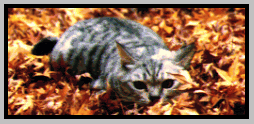

mailto:m-souda@jsn.justnet.or.jp

The Oxford Dictionary defines mathematics as that "abstract science which investigates deductively the conclusions implicit in the elementary conceptions of spatial and numerical relations." But following this definition, the history of mathematics cannot, strictly speaking, go back much earlier than the time of Tha'les (c.600B.C.), a relatively modern writer if we consider the antiquity of the race. So the author of this book says he dare to discard this definition, and that he takes a border view of the case, seeking to tell the story of the genesis of mathematics.
It might seem troublesome to the people who are not used to it, but it is very imporatant in every field to make one's fundamental standpoint clear.
It seeme to me that he thinks the truth of mathematics has existed since the time of beginning of the universe, before the human being got the mathematics.
mailto:m-souda@jsn.justnet.or.jp
This time I'll take up 「あげる(ageru)」. Look at the following sentences.
1.賛成の方は、手をあげてください。(Sanseino katawa, teo agete kudasai.)
2.君に、この本をあげよう。(Kimini, kono hon'o ageyoo.)
3.みんなにおもしろい話をしてあげよう。(Min'nani omoshiroi hanashio shite ageyoo.)
These three sentences have the word "ageru", but each "ageru" has the different meaning. The meaning of sentence 1 is "Please raise your hand if you agree." And that of sentence 2 is "I'll give you this book." Sentence 3 is "I'll tell you all an interesting story." That is, "ageru" has the meanings of "raise","give" and "do sth. for someone". "Ageru" of the sentence 3 is used as an auxiliary verb.
"Uraniwa niwa niwa, niwa niwa niwa niwatoriga iru."
As you see, this sentence has seven "niwa"s. It is very difficult to understand. The word "niwa" has three main meanings:"yard", "in" and "two". Using kana letters, it is written as「うらにわ には にわ、にわ には にわ にわとりが いる。」. "Niwa" written as 「には」 means "in", so we can tell the difference. But the differences of the two other meanings can not be told in kana letters. In such a case, kanji is very useful. 「庭」 means "yard" and 「二羽」means "two". So using kanji, it is 「うら庭 には 二羽、庭 には 二羽 にわとりが いる。」and we can easily understand the meaning of the sentence. We Japanese have been using kanji like this.
The meaning of the sentence is "There are two roosters(or hens) in the back-yard and two in the (front)yard."
mailto:m-souda@jsn.justnet.or.jp